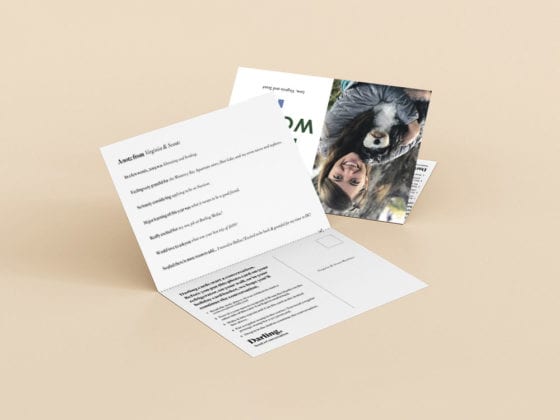As we approach the holiday season and the beginning of a new year, there’s no doubt that most of us have full schedules, with little time for a social life outside of work and home. We may find that instead of working to develop a few intimate friendships in our spare time (through intentional coffee dates or phone calls), we only end up settling for brief interactions over Facebook or Instagram. Although we may have hundreds of “friends” online, it’s possible that we’re still lonely and hungry for deep connection.
Oftentimes, virtual friendships are less satisfying than face-to-face ones, and “conversations” online leave people feeling lonely. It makes sense, then, that when we focus too much on superficial relationships (perhaps those on our social networks), it comes at the expense of deep, face-to-face friendships—and even our own wellness and happiness.
When we focus too much on superficial relationships, it comes at the expense of deep, face-to-face friendships.
When it comes to friendships, quality is far more important than quantity. Good quality friendships—those built on trust, honesty, dependability, mutual support and caring—can actually enhance our overall health and well-being.
There is value in building a small network of healthy friends to “do life with.” Academic researchers and counselors alike encourage us to “find our tribe,” our inner circle of support with whom we can identify and connect. They concur that deep social connection is as important to our health as diet and exercise.
There is value in building a small network of healthy friends to ‘do life with.’
In his new book, People Fuel, Dr. John Townsend, relationship expert, maintains we need relational nutrients just as much as physical nutrients to stay healthy. He suggests that if we want to truly grow and flourish in our lives, then we need to focus on building a “life team”—a small group of three to 10 people who we can connect with on a regular basis.
According to Townsend, the purpose of these friendships is to support each other’s mutual growth. He explains that as we “fuel up” on relational nutrients from others, we will then be ready to provide them to people within our circles. Though Townsend’s way of describing our needs and the importance of cultivating deep, stable friendships is presented in a fresh new way, his main points are timeless.
Yet, no doubt, we can all think of friends who have done the reverse of this—increased our stress and stolen our joy. It is possible to feel physically sick after unhealthy interactions with a close friend. Negative relationships have a real effect on your health.
These types of “toxic” relationships can do a number on our mental, emotional and physical health (for example, they can cause anxiety, lower self-esteem and lead to strain and stress that then exacerbate existing health problems).
It is important to remember that building healthy, deep friendships and protecting ourselves from toxic ones is an act of self-care. When we do, we will indeed find that as we fuel up through our quality friendships, we are then able to give more to others and to the world.
It is important to remember that building healthy friendships and protecting ourselves from toxic ones is an act of self-care.
Let us start to consider stepping away from the unhealthy friendships in our lives, and instead let’s build a small network of healthy ones to walk through life’s highs and lows, hand-in-hand. We shouldn’t be friends with everyone, and it’s perfectly OK. Make a choice to focus on healthy friendships, and invest in your emotional and physical health.
Have you ever had to let go of an unhealthy friendship? What have you learned about maintaining healthy friendships?
Image via Fabrizio Scarpa, Darling Issue No. 19












2 comments
I love this!
I broke up with a friend right before my wedding and have felt bad about it for a long time. Reading this encourages me that I made the right choice, and by saying goodbye, I chose myself. Thanks!
So true! Sometimes it’s better to let go of something that’s beyond fixing. Thanks for sharing! 🙂
–
Charmaine Ng | Architecture & Lifestyle Blog
https://charmainenyw.com